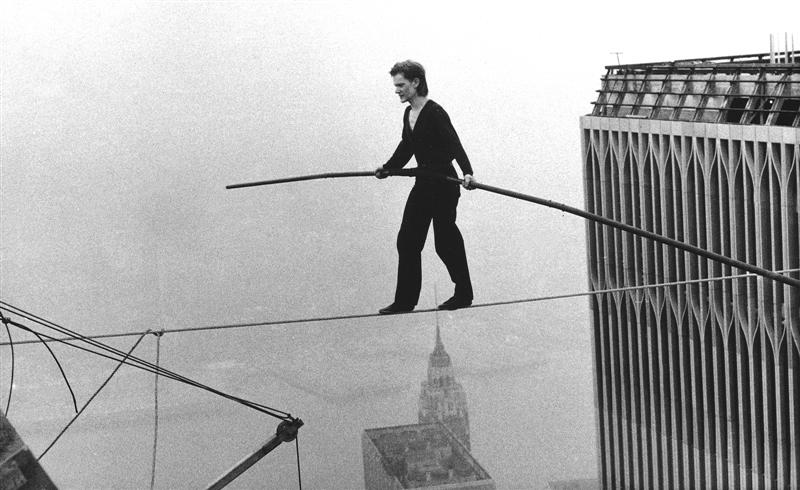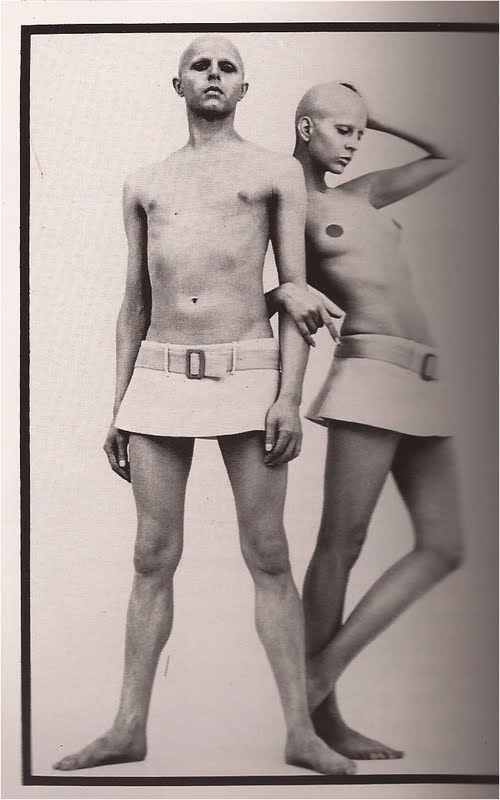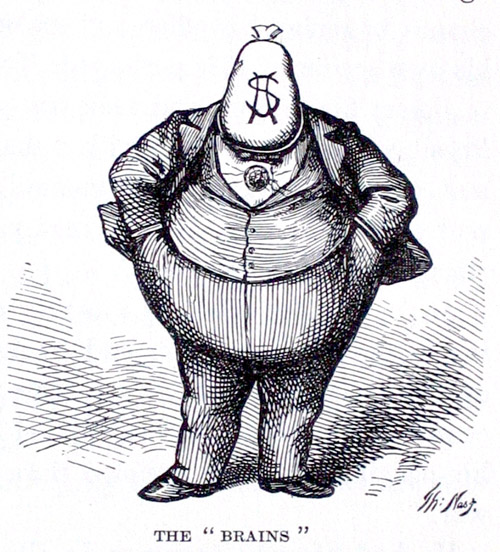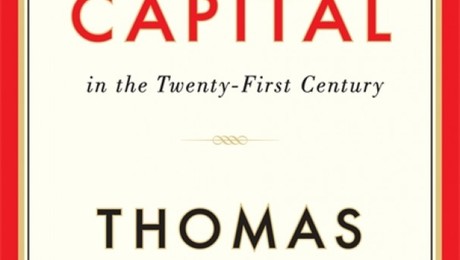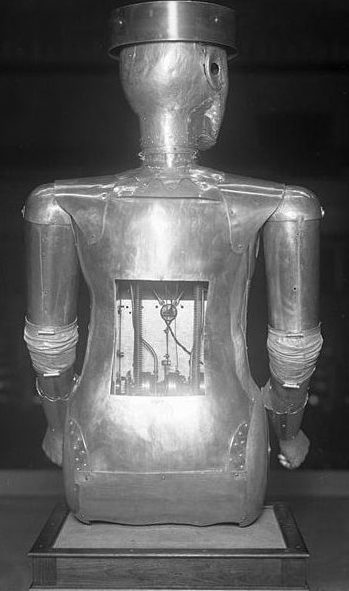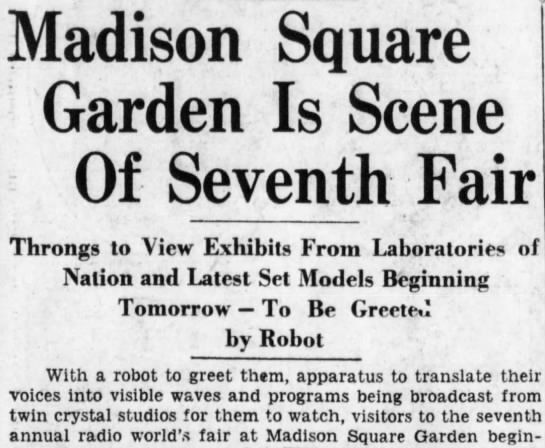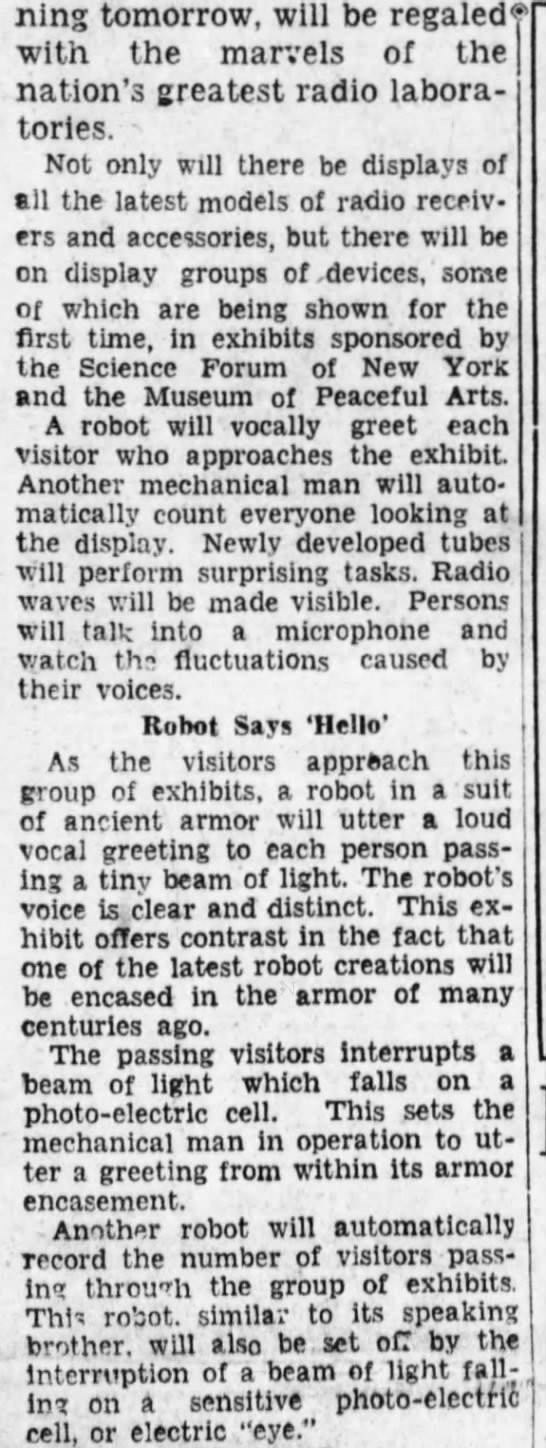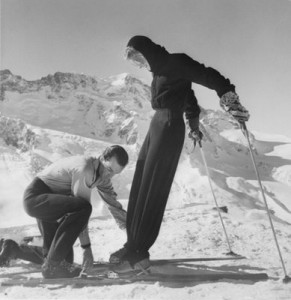
This week, Republicans made their motivation for the Benghazi hearings a little too obvious when swearing in their expert witness.
- Old Print Articles: A couple thousand spectators watched a six-day foot race at Madison Square Garden (1882) + Conventioneers at Madison Square Garden are greeted by a talking robot (1930) + Postbellum underground moonshine vaults discovered in Brooklyn (1909).
- Featured Videos: A closeout sale on DeLoreans in California (1983) + A consumer-goods fair was held in Khrushchev-era Moscow (1959) + Braniff Airlines unveils Emilio Pucci-designed NASA-ish unis for flight attendants (1965) + William F. Buckley and Diana Trilling discuss the Jean Harris murder case (1981) + Designer Rudi Gernreich thought the future would be computerized, unisex and hairless (1960s).
- Recently Posted on NYC’s Craigslist: Humanitarian aid for Syria at last + I missed the Obamacare deadline + Keep the unclean rabbit manure for someone less classy.
- Athletes shouldn’t be encouraged to offer “hometown discounts.”
- Stephen Hawking thinks AI might be the worst thing ever.
- Aubrey de Grey believes someone alive in 2014 may live to 1000.
- Paul Krugman thinks GOP attacks on Obamacare are working.
- Slavoj Žižek believes the new world order has left us without boundaries.
- Lenny Bruce and Joan Rivers lectured at UCLA decades ago.
- Wire walker Philippe Petite has a complex relationship with technology.
- Future citizens should probably vote now.
- Trying to explain the Thomas Piketty sensation.
- Piketty thinks both progressive taxation and education are necessary.
- Alex Pentland’s work with Big Data was influenced by Canadian beavers.
- Sun Ra is celebrating his centennial on Saturn.
- Dr. Dre may be a trillionaire within 25 years.
- Steven Pinker mounts a defense of tweeting and texting.
- Car culture might decline with the perfection of robocars.
- Among other things, pesticides are causing Colony Collapse Disorder.
- There are so many TV channels, most of them unwatched.
- A small investment in people can mean so much.
- Every country in the world will soon have military drones.
- Extreme gasoline efficiency and 3D printed makeup make progress.
- You’ve been entered into the system. You’ll never be anonymous again.
- In 1970, Joseph Heller brought Yossarian to UCLA.
- Japan is unsteadily trying to find its place in the modern world.
- A brief note from 1910 about an overreaction.
- A brief note from 1934 about a hungry dog.
- This week’s Afflictor keyphrase searches.



